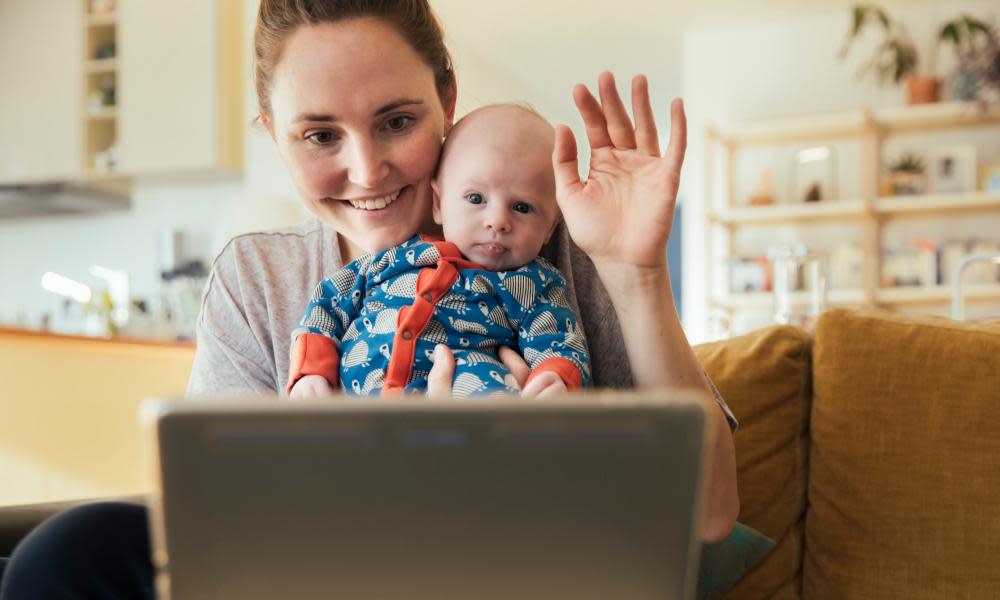Lockdown babies slower to meet most milestones, study finds

Babies born during the first lockdown met fewer developmental milestones aged one compared with those born before the pandemic – although they may have been faster to crawl, data suggests.
About 600,000 babies were born in Britain, and a further 60,000 in Ireland, during 2020 – when Covid restrictions and mask wearing put a stop to many social activities, including toddler rhyme-times, antenatal group outings and cuddles with grandparents. Since then, parents and psychologists have pondered the impact of such enforced isolation on babies’ social development.
“The Irish lockdown, in particular, was a very stringent lockdown,” said Dr Susan Byrne, a paediatric neurologist at the Royal College of Surgeons in Ireland. “During the first six months, the families [we studied] were in contact with only four other people outside the family unit, on average, and by the time they reached 12 months, one in four of the babies hadn’t met another child their own age.”
To investigate how this affected their development, Byrne and her colleagues asked the parents of 309 “pandemic” babies to assess their ability to crawl; pick up tiny objects with their thumb and index finger; express at least one definite and meaningful word; and seven other developmental milestones, once they reached 12 months of age. The babies were all born between March and May 2020.
The study, published in Archives of Disease in Childhood, suggested that the pandemic lockdown had a small but measurable effect on babies’ language and communication skills: Compared with pre-pandemic babies, they were less likely to have one definite and meaningful word (89% v 77%), to point at people or objects (93% v 84%), or to be able to wave “bye-bye” (94.5% v 88%).
However, more or them were able to crawl (91% v 97.5%) – possibly because they spent more on the ground, rather than strapped into cars and pushchairs.
Byrne said: “It’s interesting, because a lot of these babies were at home and not seeing many people leave, meaning there wouldn’t have been anybody to say ‘bye-bye’ to. Babies also tend to point when they see new things that they want, but if they weren’t going outside, they would have already known about everything in their environments.”
She stressed that the differences were small, and there was plenty that parents could do to help toddlers catch up – such as regularly reading and chatting to them.
“Babies are resilient and inquisitive by nature, and it is very likely that with societal re-emergence and increase in social circles that their social communication skills will improve,” said Byrne. “However, this cohort and others will need to be followed up to school age to ensure that this is the case.”

 Yahoo News
Yahoo News 
